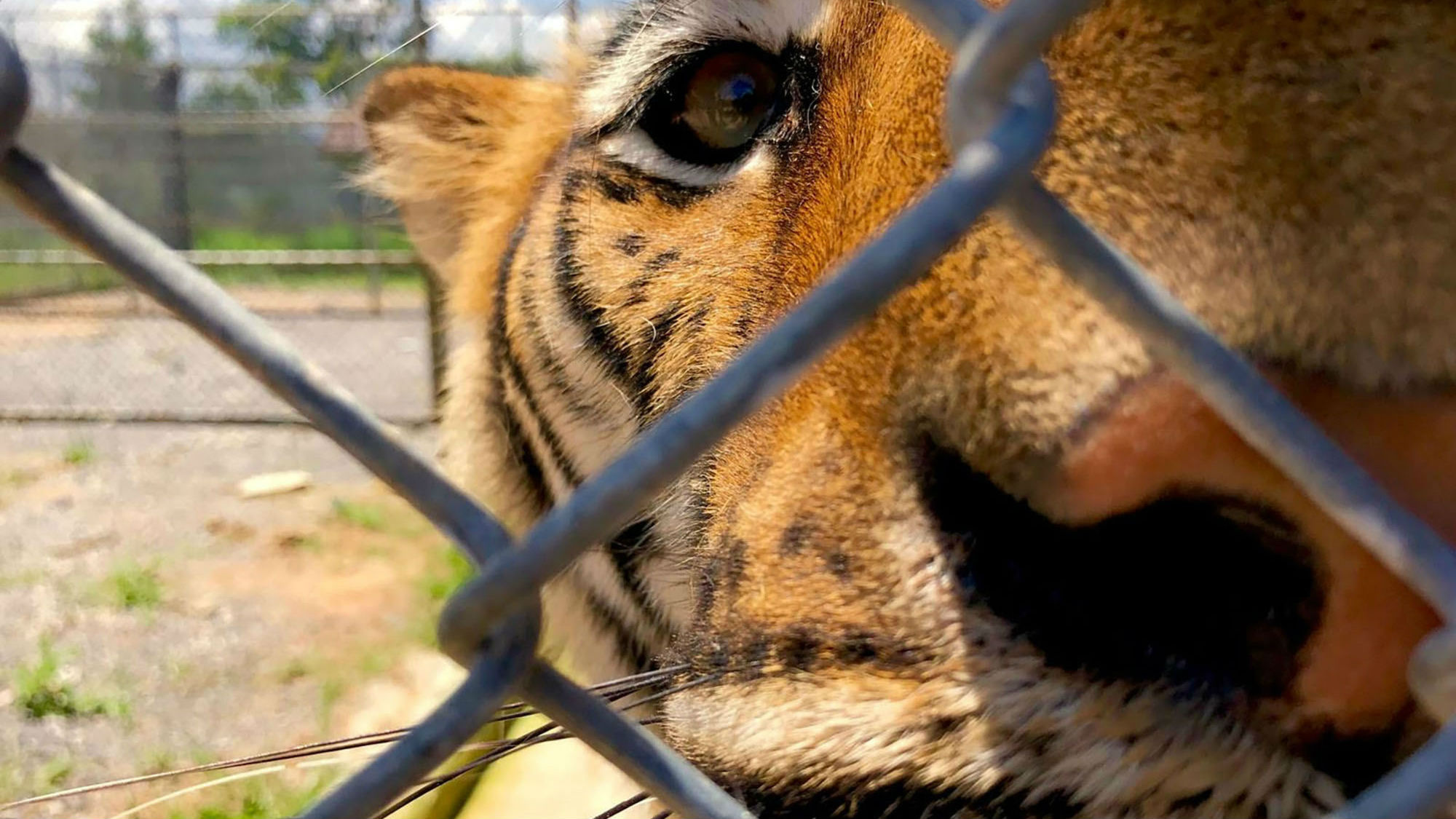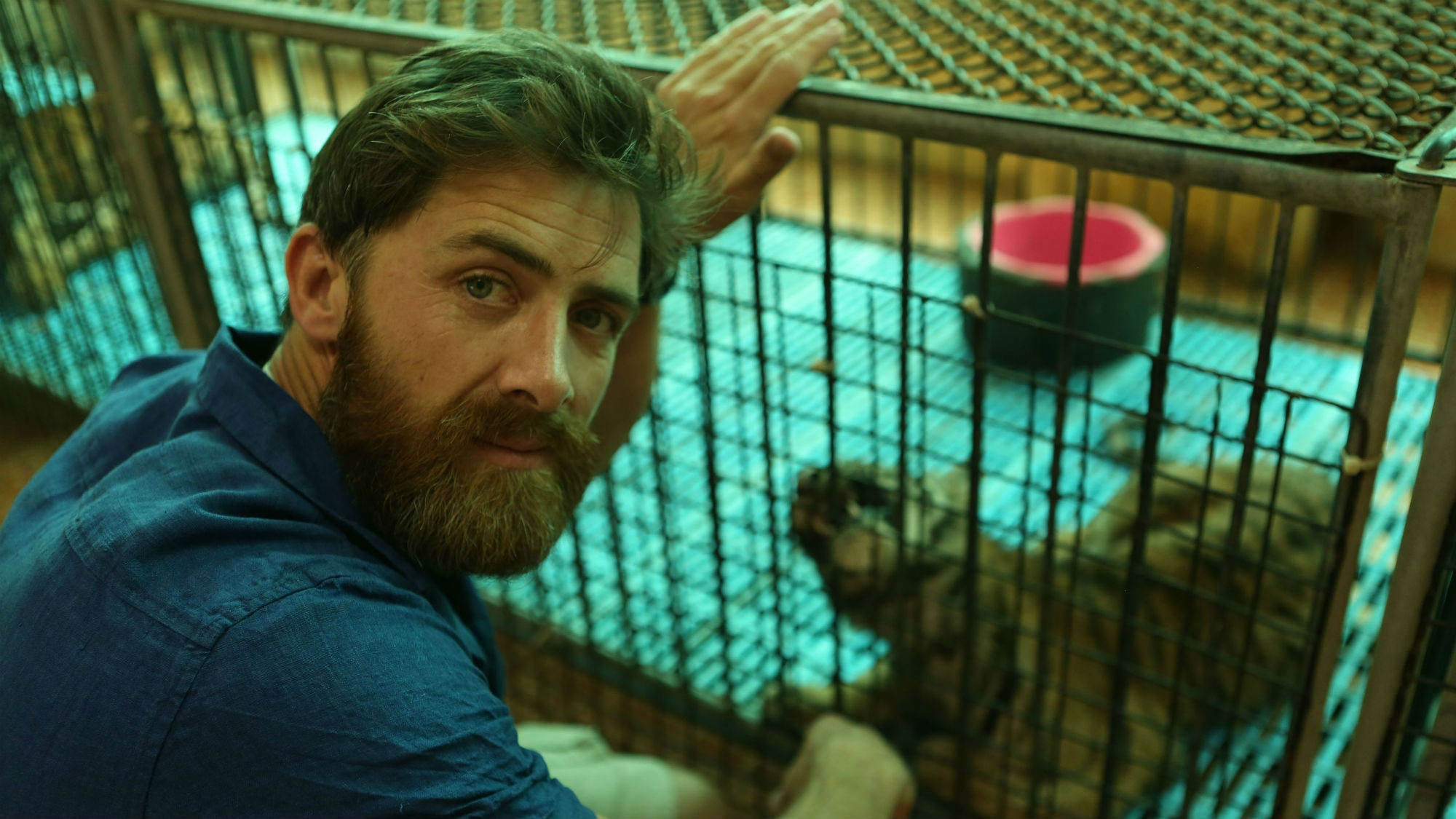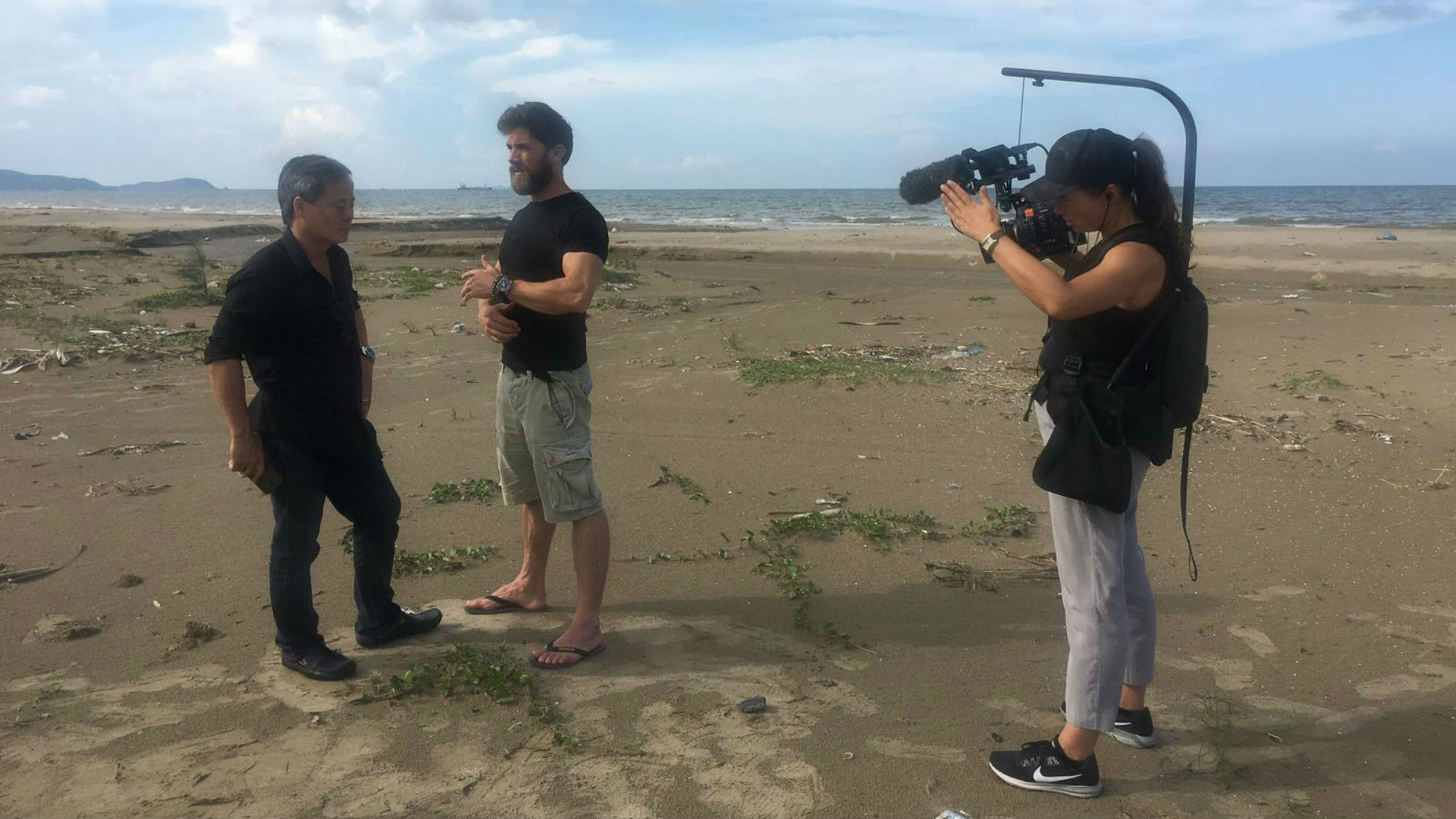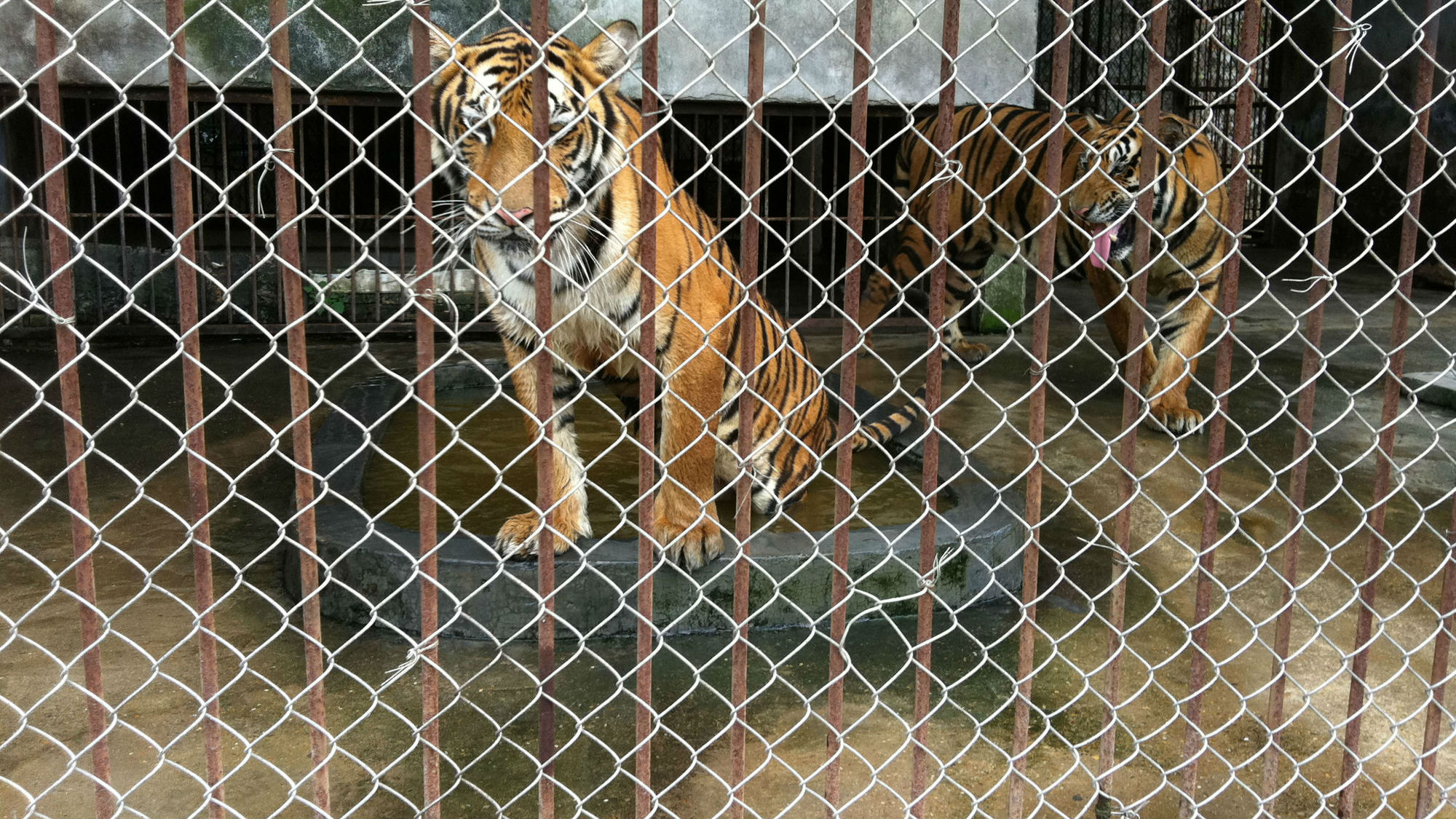Director Laura Warner's new film exposes 'heartbreaking' tiger trafficking farms
The leading female film director shares shocking secrets of the illegal tiger trade in South East Asia in her latest documentary: Tigers: Hunting the Traffickers

Celebrity news, beauty, fashion advice, and fascinating features, delivered straight to your inbox!
You are now subscribed
Your newsletter sign-up was successful
The leading female film director shares shocking secrets of the illegal tiger trade in South East Asia in her latest documentary: Tigers: Hunting the Traffickers
Danger. Jungle. Tigers. Trafficking. The words used by award-winning director, journalist and cinematographer Laura Warner to describe her ‘typical working day’ are far from usual, but the mum-of-two couldn’t be happier about it. ‘I have the best job in the world,’ she tells us.
Laura, 44, has created 11 trafficking films, tackling subjects such as black-market commodities including babies, human organs, guns and fake pharmaceuticals. Ahead of the unveiling of her latest documentary, Tigers: Hunting the Traffickers, uncovering illegal tiger farms in South East Asia, we spoke with Laura to learn more about her perilous journey across Malaysia, China, Thailand, Laos and Vietnam. A year in the making, she recorded evidence that tigers are being farmed and butchered to meet demand for illegal products like tiger-bone wine and tiger bone glue, which are believed to have medicinal values in parts of Asia and yield a street-value higher than cocaine.
It’s estimated 96% of the world’s wild tigers have disappeared since the turn of the 20th century and there are fewer than 4,000 tigers left in the wild. Here, Laura talks about the reality of working in a man's world and expands on what we can all do to help protect tigers from extinction.

What was the most shocking discovery for you?
Seeing cages and cages of sad-looking tigers. The Chinese came up with this idea of farming them because they breed really well in captivity, and are really hard to catch in the wild. This story was particularly complicated to tell because I know people are going to question why it is wrong to breed tigers because we do the same for cows and sheep, but these animals aren’t endangered. Tiger farms continue to drive consumer demand for tiger products, fuelling poaching and putting this majestic species on the brink of extinction.
Did the tigers ever try to fight the traffickers?
Celebrity news, beauty, fashion advice, and fascinating features, delivered straight to your inbox!
It’s really sad. These tigers are clearly aware that they are not the boss. They just do as they are told. It feels wrong. And because they’re sold on their weight, ahead of being killed and cooked to order, they are pumped full of liquid and fed chicken so they’re as fat as possible. They can barely stand up, and their stomachs scrape the ground. They are broken.
Did you become emotional at any point?
It’s my job to examine and explore the issue, and I don’t think that excludes being emotional about what you see. If I have an emotional reaction to a person or a situation or an animal, it means something important is happening. We saw hundreds and hundreds of tigers, but there were two I felt I had a connection with. I looked them in the eye and they were begging me to help them. It was absolutely heartbreaking.
Were you worried for your safety at any point?
Ultimately, if you’re trying to gather as much evidence as possible about an illegal activity, run by criminal networks, there’s always a risk. If they suspect at any point that you’re going to be disrupting their income…[pauses]. But I do stress that I’ve got 20 years of experience of investigating criminal networks, so I’m quit savvy. And the team had Aldo Kane with us, who specialises in providing safety for film and television productions in extreme environments. That said, with all missions, there is also a degree of luck to its success.

What could happen if you are caught when undercover?
You hope you’re going to get shouted off location, but you just don’t know. It depends how threatened the traffickers feel. But we don’t go into any of these situations lightly. Yes, there is a large degree of danger, but I do have two kids at home so I always aim to make sure that I come back in one piece.
Do emotions run high when you have to leave them?
Every time I leave I’m racked with endless guilt. I feel really bad and the night before I leave I infrequently sleep. Yes, they do really miss me and for a week after I come back there’s definitely a lot of cuddles. But I’ve got two girls, Alva, 8 and Mila, 6, and as they’ve got older it’s become quite important to me that they see that I can do this. It’s important to me that they think I can do anything and by extension, so can they.
How do you juggle parenting duties when you’re away for weeks at a time?
I have an amazing live-in nanny and my partner pulls his weight. After all, they are his kids too [laughs]! It’s interesting because in previous job interviews I always find a conversation comes up about what my childcare is, and I know the majority of my male colleagues also have children and they never have that conversation.
Do you feel that you are, as a woman, fighting for equality in your industry?
[Immediately] Yes. There are certain roles within the industry where it’s considered totally normal to be a woman: in production management, the producer role, or the executive producer role, for example. But then I do feel that as a director - and especially as a self-shooting director (somebody who picks up a camera, deals with kit and talks about technical stuff like lenses ) - it’s met with surprise. It’s still not normalised and that saddens me. I think it’s really important to have female role models in that creative and more techy space because unless other women, younger women, can see that it’s all possible, you just assume that as soon as you have kids you just retire to the office. I don’t want to retire to the office.
How did you get into this career - have you always been interested in adventure?
Basically, yes! My mother is an artist, so I was always going to do something creative. I studied languages at university and did lots of trips abroad, and that started my passion for photography, which then morphed into documentary and filmmaking. I’m paid to do my passion.
What was a typical day like for you on location?
As the film is an investigation we have a tiny team, and the days are long and hard. Sometimes you get up in the morning, prep all of the kit and then traipse through a jungle – getting caught on branches and battling rainstorms - for hours to find the farms. Then we set up camera traps or try and sneak in and get as much footage as possible, as well as shooting interviews. We were doing three to four countries on a run, so you come back quite broken, quite tired. It’s really satisfying though and I wouldn’t have it any other way. You really need to be able to survive on four hours sleep and sporadic food, and be prepared to get very wet and muddy and covered in leeches.

It sounds like you need some serious physical strength for these projects – do you train or hit the gym in advance of filming?
Yeah, and actually as I’ve got older I have to do more. I used to bash out a 10K run or two a week, but now I go to a CrossFit gym four times a week. I don’t think I could do this job unless I was really fit.
Do you watch lighthearted reality shows in your downtime, or are you a bit of a TV snob?!
I do spend a lot of time watching feature docs, but if I’m really stressed out at work and I just need to not think about anything, I watch Death in Paradise. I’m such an old woman!

The documentary raises awareness of the trade, but is there anything we can do as individuals to protect the tigers?
Absolutely. Everybody can do their part. The most important thing is that people are aware that this happens. If you’re going to go on holiday to Thailand, China or Vietnam, don’t go to a tiger zoo. We can all do something – we can petition governments, we can pay attention to what’s happening. Ultimately, it’s public awareness and pressure that helped change the laws on elephant ivy, for example. Five years ago, no one knew what a Pangolin was, but now everybody knows that they’re the most trafficked animal in the world. That just takes all of us to put pressure on governments and institutions.
Tigers: Hunting the Traffickers airs on Wednesday March 4, 9pm on BBC Two
Olivia – who rebranded as Liv a few years ago – is a freelance digital writer at Marie Claire UK. She recently swapped guaranteed sunshine and a tax-free salary in Dubai for London’s constant cloud and overpriced public transport. During her time in the Middle East, Olivia worked for international titles including Cosmopolitan, HELLO! and Grazia. She transitioned from celebrity weekly magazine new! in London, where she worked as the publication’s Fitness & Food editor. Unsurprisingly, she likes fitness and food, and also enjoys hoarding beauty products and recycling.